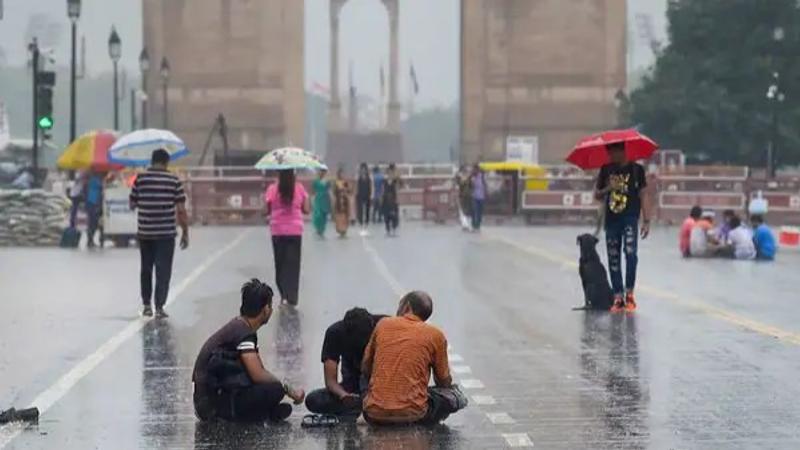Published 18:08 IST, August 1st 2024
Six Delhi Weather Stations Record Over 100 mm Rainfall, IMD Calls it 'Extremely Intense Spell'
During a press conference, Director General of Meteorology, IMD, Mrutyunjay Mohapatra, clarified that the intense rain witnessed in the city was not a cloudburst.

New Delhi: Six weather stations across Delhi recorded over 100 mm of rain in a single day, the India Meteorological Department (IMD) said on Thursday, categorising it as an "extremely intense spell".
During a press conference, Director General of Meteorology, IMD, Mrutyunjay Mohapatra, clarified that the intense rain witnessed in the city was not a cloudburst.
According to the IMD, the city's primary weather station, Safdarjung, recorded 107 mm of rainfall in the last 24 hours. Other stations, which also received significant rainfall, included Mayur Vihar (147 mm), Najafgarh and Ridge (113 mm), Lodi Road (106 mm) and Delhi University (104 mm), it said.
In contrast, other stations like Pusa recorded 86 mm, Aaya Nagar (71 mm) and the Palam observatory (68.3 mm) of rain, as per the IMD data. Mohapatra explained that the IMD had initially placed Delhi on an 'orange' alert but as the situation intensified, the alert level was upgraded to 'red'.
"Yesterday's condition was not a cloudburst, it was an extremely intense spell," he added.
The weather office has issued a 'yellow' alert for Thursday and Friday as light to moderate rain is expected in the city. The IMD uses colour codes in weather warnings "for bringing out the severity of the weather phenomena expected". The key idea is to forewarn relevant officials and the disaster management authority "about the impact of the weather expected so as to keep them ready for necessary action related to disaster risk reduction".
'Green' alert means no advisory is required, 'yellow' indicates be aware as the conditions will worsen, causing disruptions to daily life.
'Orange' denotes prepare for likely power outages and potential disruptions to transport, rail, road, and air, and 'red' means take action as an extremely bad weather condition is expected to disrupt transportation and power supply and could pose a risk to life.
According to the IMD parameters, 2.5-15.5 mm of rain is considered light rainfall, 15.6 mm-64.4 mm as moderate, 64.5-115.5 mm as heavy, 115.6-204.4 mm as very heavy and over 204.5 mm as extremely heavy. Large parts of Delhi were inundated by heavy showers on Wednesday, with multiple incidents of fallen trees and wall collapses reported from across the city as several key stretches were choked with unending traffic and people left stranded. The torrential downpour prompted the weather office to include the national capital in its list of "areas of concern" in the National Flash Flood Guidance Bulletin. The department advised people to remain indoors, secure windows and doors, and refrain from unnecessary travel.
Delhi Education Minister Atishi announced late Wednesday night that all schools in the city will remain closed on Thursday.
The inclement weather also hit air traffic with many flights scheduled to land at the Delhi airport being diverted. Meanwhile, in July, Delhi did not witness a single day when the AQI fell into the poor, very poor, or severe categories, according to Central Pollution Control Board (CPCB) data.
For 20 days, Delhiites experienced a satisfactory level of AQI, while in the remaining 10 days, the city's AQI was in the moderate category.
Updated 18:08 IST, August 1st 2024




